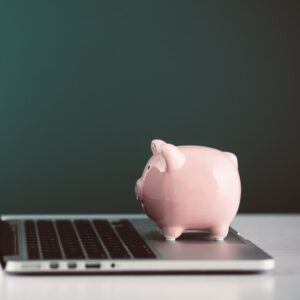What Is a Sales Budget?
A sales budget is a plan that predicts sales and itemizes details of what you expect to sell as well as the number of units. It’s an estimate of future accounting for a business usually broken down by quarters of the year.
The Importance of Sales Budget for Start-ups
Business owners need sales budgets to determine expectations about future earnings. The budget aligns with specific time periods that are critical for establishing other budgets for the company’s success. A sales budget is based on factors such as economic conditions, competition, production resources, and expenses. A good sales budget includes:
- Sales numbers
- Revenue
- Cost to fulfill sales
- Salaries, Bonuses & Commissions
- Advertising
- Promotions
- Sponsorships
There are many ways a sales budget benefits a business. Some of them are below:
Builds Core Strategies
A sales budget is critical for building core strategies. Without a sales budget, this wouldn’t be possible. Your team can access the resources they need and take necessary steps to improve from or build upon the previous year’s outcomes.
Improves Cash Flow Management
A sales budget helps improve a company’s cash flow management. For instance, when sales are good, you can increase spending on marketing as needed. Your sales budget also directly impacts the production budget. In order to meet the sales goals, production needs to reflect that. Without a solid sales budget, production is one of the primary things that will suffer.
Establishes Specific Sales Goals
A sales budget provides your team with the milestones they need to reach for the month, quarter, or year. Milestones help keep everyone on their toes and pushing toward those goals.
Helps Determine Overhead
Having a sales budget also helps determine overhead costs and helps you evaluate potential profit margins so you can set appropriate pricing strategies. Using the sales budget as a projection of revenue and expenses helps plan other budgets, including overhead, and makes your budget less prone to error.
How to Prepare a Sales Budget
There are several things to do to establish your budget:
Set a Time Frame
Your sales budget should cover a fixed period, like weeks, months, or quarters. So the first thing you want to establish is the time frame.
Find Your Prices
The next thing you need to do is establish your prices. It’s hard to predict revenue if you don’t know your sales prices. So figure out how much each unit will sell for and account for any time that you need to make changes to prices within that period.
Look at Previous Data From a Similar Period
Look at historical data to get an expectation of what’s to come. Looking at past sales performance will help bring perspective to similar situations today.
Compare Your Data to Your Industry and Competition
Look at what’s happening in the industry. How are your competitors performing? See what you can learn from their experiences. This is helpful to see what you can expect, especially if you and a competitor share a similar market position.
Talk to Customers
Send surveys to your customers so you can hear directly from them. Find out what’s working; what’s not. Does your product still appeal to your audience? Are they still enthusiastic about it? Hearing directly from the audience will help put things in perspective and possibly provide insight into shaping your sales budget.
Identify Market Trends
Identifying market trends is important to frame the budget. Looking to the past is helpful, but you must also note any recent trends in the market.
 Create Your Budget
Create Your Budget
Now that you have all the information you need, you can create your budget. After all of this, you should have a good feel for how many units you can expect to sell and put together an accurate sales budget.
Example of a Sales Budget
What your budget looks like is determined by the number of products or services you sell and the possibility of discounts. Options would be
One Product or Service With No Discounts, where the Expected Unit Sales times the Price per Unit equals the Total Overall Revenue (over four quarters)
| Quarter 1 | Quarter 2 | Quarter 3 | Quarter 4 | Annual | |
| Expected Sales (11,000) | |||||
| x Price per Unit ($45) | |||||
| = Total Overall Revenue ($495,000) |
Multiple Products or Services, the Expected Unit Sales of the first product times the Price per Unit equals the Total Revenue of the first product. Do this for each product you have (over four quarters)
| Quarter 1 | Quarter 2 | Quarter 3 | Quarter 4 | Annual | |
| Expected Units Sales, Product #1 (11,000) | |||||
| x Price per Unit ($45) | |||||
| = Total Revenue, Product #1 ($495,000) | |||||
| Expected Unit Sales, Product #2 (5,000) | |||||
| x Price per Unit ($20) | |||||
| =Total Revenue, Product #2 ($100,000) | |||||
| = Total Overall Revenue ($595,000) |
One Product or Service With Discounts, where the Expected Unit Sales times the Price per Unit equals the Gross Sales Revenue minus Sales Discounts equals Total Net Sales (over four quarters).
| Quarter 1 | Quarter 2 | Quarter 3 | Quarter 4 | Annual | |
| Expected Unit Sales (11,000) | |||||
| x Price per Unit ($45) | |||||
| =Gross Sales Revenue ($495,000) | |||||
| — Sales Discounts ($49,500) | |||||
| = Total Net Sales ($445,500) |
This example is of a sales budget with different sales and different price points throughout the year.
| Quarter 1 | Quarter 2 | Quarter 3 | Quarter 4 | Annual | |
| Expected Unit Sales | 10,000 | 5,000 | 12,500 | 8,000 | 35,500 |
| x Price per Unit | $30 | $45 | $37.50 | $42 | |
| = Total Overall Revenue | $300,000 | $225,000 | $468,750 | $336,000 | $1,329,750 |
Conclusion
Your sales budget is crucial to your business; it can help keep everyone focused. It’s important that as a business owner, you understand the importance of it and how to do it. When it comes to getting sales – that’s where Selling Revolution comes in. We can help with sales training and finding you consistent, quality leads for your business. Book a call with us today to see how we can help your business.



 Create Your Budget
Create Your Budget